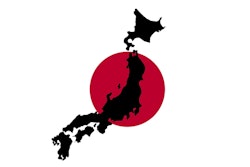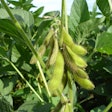
Canada has agreed to join the United States and Mexico in a trade deal that will replace the North American Free Trade Agreement, U.S. and Canadian officials said Sunday night, reports USA Today.
The last-minute deal will offer the U.S. greater access to Canada's diary market than what the U.S. would have achieved through the Trans-Pacific Partnership.
The new deal has a new name: the United States-Mexico-Canada Agreement.
The U.S. Grains Council (USGC) is pleased the three countries have reached a new agreement.
"No trade agreement has had more impact on our sector than NAFTA which prompted explosive growth in our export sales to both countries as well as the development of a fully-integrated grains and livestock supply chain within North America," says USGC Chairman Jim Stitzlein. "Over the past two decades, this agreement has proven beneficial for the producers, agricultural sectors and economies of all three countries."
The National Grain and Feed Association (NGFA) and North American Export Grain Association (NAEGA) also commended the countries for reaching a trilateral trade agreement.
"Given the integrated nature of the North American economy, including within the food and agricultural sector, it was extremely important to reach a trade agreement that included all three countries," says NGFA President and Chief Executive Officer Randy Gordon and NAEGA President and Chief Executive Officer Gary Martin.
The NGFA and NAEGA also said they were particularly pleased by what they understand to be several efforts to preserve and enhance current trade terms in North America that were agreed to initially between the United States and Mexico. These include: the retention of zero tariffs on agricultural products traded between the United States and Mexico; the addition of 21st century language to enhance information exchange and cooperation on agricultural biotechnology trade-related matters; an agreement to strengthen disciplines for science-based sanitary and phytosanitary (SPS) measures to facilitate trade; and an agreement that grading standards and services on agricultural products, including grains and oilseeds, will operate independently from domestic registration systems for grain and oilseed varieties.
Concerning SPS measures, the NGFA and NAEGA said they particularly were pleased by the inclusion of a provision - advocated by both groups - that would commit the three countries to provide notification of any adverse SPS import issues within five days, versus the seven days that had been agreed to under the Trans-Pacific Partnership Trade Agreement from which the United States withdrew.


















